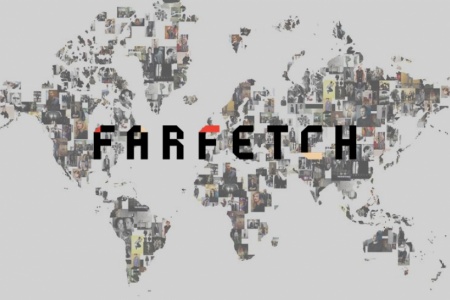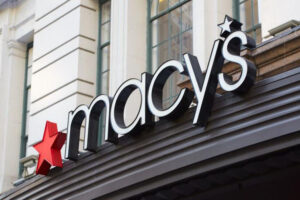Farfetch unveils tie-up with Harvey Nichols
A luxury UK-based fashion website is gearing up for a stock exchange listing that is expected to value the company at more than £4bn – or close to the current market valuation put on the whole of Marks & Spencer.
Farfetch, launched in 2008, enables nearly 900 boutiques and luxury brands to sell their designer fashions to a customer base of 2 million well-heeled shoppers across 190 countries.
On Monday it will unveil a deal with upmarket department store Harvey Nichols in the latest of a series of alliances that already include Burberry and Chanel.
The valuation puts Farfetch in the elite league of UK fashion companies. Burberry currently has a stock market value of £7bn, while Asos, aimed at fashion-conscious millennnials, is valued at around £6.3bn.
Marks & Spencer’s shares have dived over the past year from 395p to a year-low of 277p in trading last week, valuing the high-street behemoth at £4.5bn.
FarFetch was founded by Portuguese fashion entrepreneur José Neves in 2008with the idea of creating a single online marketplace for luxury boutiques and brands. Over the past decade it has grown in stature, attracting high-profile investors such as: Temasek, Singapore’s investment company; Vogue publisher Condé Nast International; and the Chinese e-commerce behemoth JD.com.
The luxury market grew by 5% to an estimated €1.2 trn (£1.07trn) in 2017 according to consultancy firm Bain which said the majority of that growth was down to spending by shoppers under 40. Online sales jumped 24% to account for 9% of luxury retail which explains why high-end brands such as Harvey Nichols are so eager to work with Farfetch, which boasts that the average age of its shoppers is 36 years old.
Harvey Nichols, which in the 90s enjoyed cult status thanks to its lampooning in hit TV comedy Absolutely Fabulous, is owned by the Hong Kong-based luxury goods billionaire Sir Dixon Poon. In recent years the brand has fallen off the fashion radar, with sales stalling at its 15 stores dotted around the world. Poon said the deal demonstrated its “commitment to embracing cutting-edge digital technology, to create a model of the future”.
Unlike designer fashion websites such as Net-a-Porter and Matches, Farfetch does not buy any stock or run its own own logistics operation. Instead it relies on third parties to move £1,000 trenchcoats and handbags around the world, taking a 25%-30% cut of the sales it generates. Its most recent accounts recorded a £35.4m loss on sales of £151.3m in 2016.
Farfetch is co-chaired by online fashion supremo Dame Natalie Massenet who founded Net-a-Porter. “Bringing such an iconic and much-loved department store to Farfetch is a strategic milestone for both companies,” said Massenet. “Farfetch is proving it is truly the technology platform for the whole luxury fashion industry.”




